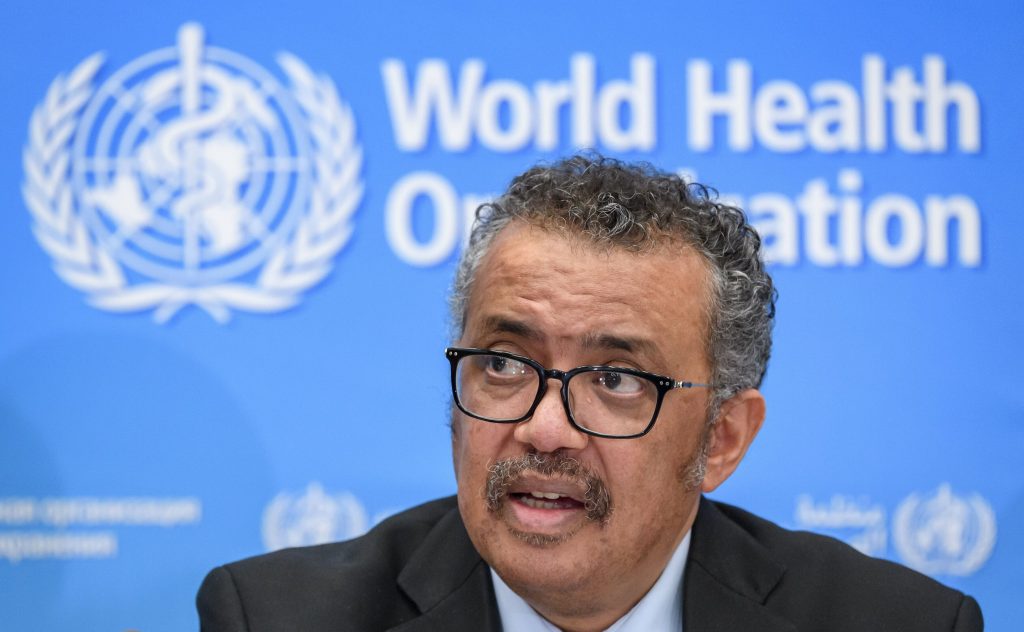Available evidence suggests new Covid 19 variants have substantially increased transmission globally and that means the risks have increased for most of the world’s population, who are not protected with vaccines, Director-General of WHO Dr. Tedross Adhanom Ghebreyesus told last night (14).
Addressing the media briefing from Geneva he pointed out right now, the virus is moving faster than the global distribution of vaccines.
According to Dr. Tedross globally, the number of new cases of COVID-19 reported to WHO has now declined for 7 weeks in a row, which is the longest sequence of weekly declines during the pandemic so far.
While weekly cases are at their lowest since February, deaths are not falling as quickly. The number of deaths reported last week was similar to the previous week.
And the global decline masks a worrying increase in cases and deaths in many countries.
The steep increase in Africa is especially concerning, because it is the region with the least access to vaccines, diagnostics and oxygen.
A recent study in the Lancet showed Africa has the highest global mortality rate among critically ill COVID-19 patients, despite having fewer reported cases than most other regions.
“At the G7 Summit on Saturday, I said that to end the pandemic, our shared goal must be to vaccinate at least 70% of the world’s population by the time the G7 meets again in Germany next year.
To do that, we need 11 billion doses.
The G7 and G20 can make this happen.
I welcome the support expressed by the G7 for WHO, the ACT Accelerator and the idea of a treaty on pandemic preparedness and response.
And I welcome the announcement that G7 countries will donate 870 million vaccine doses, primarily through COVAX.
This is a big help, but we need more, and we need them faster.
More than 10 thousand people are dying every day. During this press conference alone, more than 420 people will die.
These communities need vaccines, and they need them now, not next year.
There are enough doses of vaccines globally to drive down transmission and save many lives, if they are used in the right places, for the right people.
Health workers and those most at risk must be given priority over those at low risk.
In G7 countries, high vaccination rates have helped to bring cases and deaths from COVID-19 to near record lows.
But most countries continue to rely solely on the public health and social measures that have been the backbone of the response to date.
Indeed, many countries have successfully kept COVID-19 at bay without vaccines, through the tailored and consistent use of these measures.
Public health and social measures are effective against all variants.
But the emergence of more transmissible variants means public health and social measures may need to be more stringent and applied for longer, in areas where vaccination rates remain low.
But while we can test vaccines in laboratories or with randomized controlled trials, it is not so easy to test the effect of public health and social measures.
Because countries typically use a range of measures at the same time, disentangling the precise impact of each individual measure can be challenging.
The effectiveness of public health and social measures is also subject to the level of adherence by a population, and the commitment of governments to support them.
“ he further said
